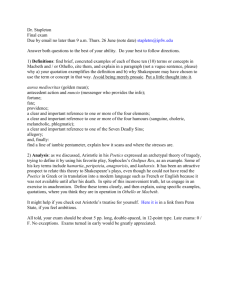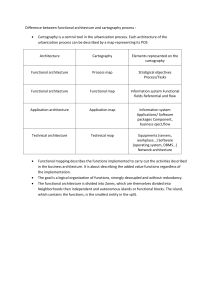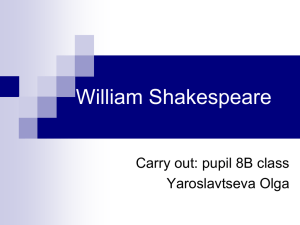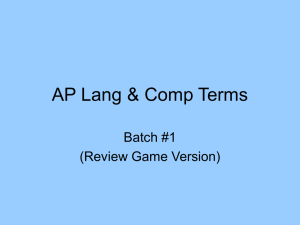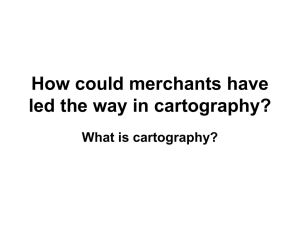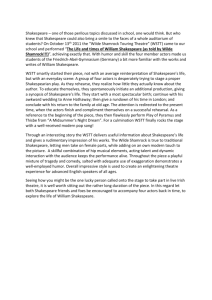Multitudinous Seas
advertisement
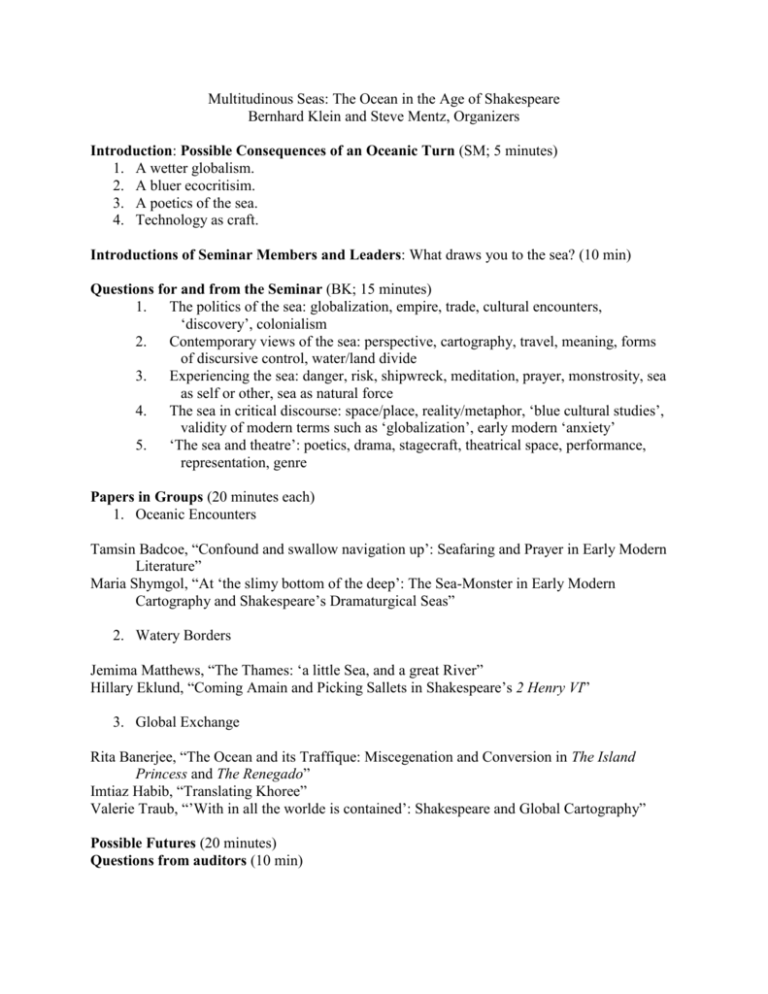
Multitudinous Seas: The Ocean in the Age of Shakespeare Bernhard Klein and Steve Mentz, Organizers Introduction: Possible Consequences of an Oceanic Turn (SM; 5 minutes) 1. A wetter globalism. 2. A bluer ecocritisim. 3. A poetics of the sea. 4. Technology as craft. Introductions of Seminar Members and Leaders: What draws you to the sea? (10 min) Questions for and from the Seminar (BK; 15 minutes) 1. The politics of the sea: globalization, empire, trade, cultural encounters, ‘discovery’, colonialism 2. Contemporary views of the sea: perspective, cartography, travel, meaning, forms of discursive control, water/land divide 3. Experiencing the sea: danger, risk, shipwreck, meditation, prayer, monstrosity, sea as self or other, sea as natural force 4. The sea in critical discourse: space/place, reality/metaphor, ‘blue cultural studies’, validity of modern terms such as ‘globalization’, early modern ‘anxiety’ 5. ‘The sea and theatre’: poetics, drama, stagecraft, theatrical space, performance, representation, genre Papers in Groups (20 minutes each) 1. Oceanic Encounters Tamsin Badcoe, “Confound and swallow navigation up’: Seafaring and Prayer in Early Modern Literature” Maria Shymgol, “At ‘the slimy bottom of the deep’: The Sea-Monster in Early Modern Cartography and Shakespeare’s Dramaturgical Seas” 2. Watery Borders Jemima Matthews, “The Thames: ‘a little Sea, and a great River” Hillary Eklund, “Coming Amain and Picking Sallets in Shakespeare’s 2 Henry VI” 3. Global Exchange Rita Banerjee, “The Ocean and its Traffique: Miscegenation and Conversion in The Island Princess and The Renegado” Imtiaz Habib, “Translating Khoree” Valerie Traub, “’With in all the worlde is contained’: Shakespeare and Global Cartography” Possible Futures (20 minutes) Questions from auditors (10 min)
